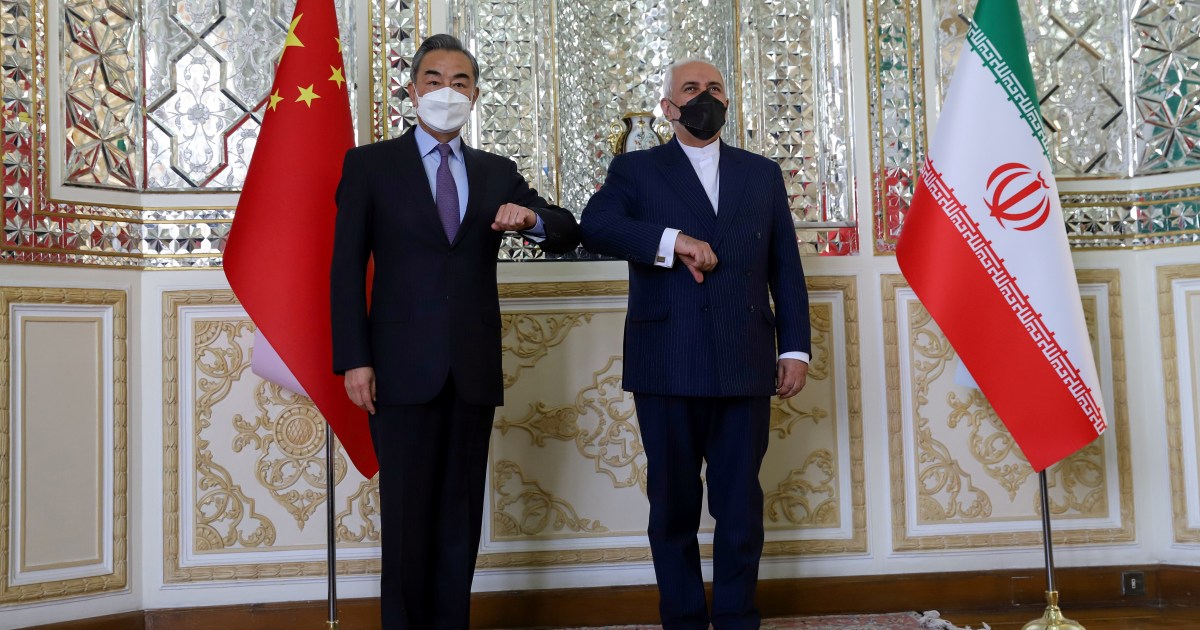On Saturday, Iran and China signed a memorandum of strategic partnership, spanning 25 years, while the Iranian president confirmed that his country is ready to take steps to facilitate the lifting of sanctions imposed on the background of its nuclear program.
Foreign Minister Muhammad Javad Zarif and his Chinese counterpart Wang Yi signed a comprehensive memorandum of understanding for the strategic partnership, the first of its kind between the two countries.
This memorandum covers cooperation in the fields of oil and energy, military and security fields, industrial investment, and also includes infrastructure development and the establishment of free trade zones on Iran's southern coasts.
President Hassan Rouhani had said that cooperating with China to implement the nuclear agreement, and urging European countries to abide by their commitments, would bring about a change in the terms of the agreement.
He added, upon his meeting with the Chinese Foreign Minister, that the US military presence in the region and its interference in the affairs of its countries lead to destabilization of security and stability, stressing the role of the Hormuz initiative proposed by his country in combating extremism and terrorism in the region.
The president said that Tehran is ready to take some steps to lift the sanctions in whole or in part, and added - during the meeting of the National Committee to Combat Coronavirus - that Washington continues "economic terrorism" against his country, which is facing difficulties in purchasing a vaccine against the Corona virus due to US sanctions.
Iranian news agencies quoted the Chinese Foreign Minister as saying, "Our relations with Iran will not be affected by the current situation, but will be permanent and strategic."
"Iran independently determines its relations with other countries, and it is not like some countries that change their position with a phone call," he added.
Successful diplomacy
Iranian media quoted Hosam Eddin Ashna, Rouhani's advisor, as saying that the agreement is a model for "successful diplomacy."
"The strength of any country lies in its ability to join alliances and not to remain in isolation," he said.
For his part, Foreign Ministry spokesman Saeed Khatibzadeh said that the document (the agreement) is a "road map" for cooperation in the fields of trade, economy and transport, with "special focus on the private sectors on both sides."
The Iranian official indicated that the draft agreement dates back to the visit of Chinese President Xi Jinping to Tehran in January 2016, when he decided with President Rouhani to strengthen relations between the two countries.
At that time, the two countries pledged, in a joint statement, to "conduct negotiations to find an expanded cooperation agreement for a period of 25 years," providing for "mutual cooperation and investments in various fields, especially transport, ports, energy, industry and services."
For its part, the Chinese Ministry of Commerce said, Thursday, that Beijing will try to protect the nuclear agreement concluded between Iran and world powers in 2015, and defend the legitimate interests of Sino-Iranian relations.
There is a dispute between the United States and other Western powers, which have signed the agreement with Tehran, over who should return first to the agreement from which former US President Donald Trump withdrew in 2018.

